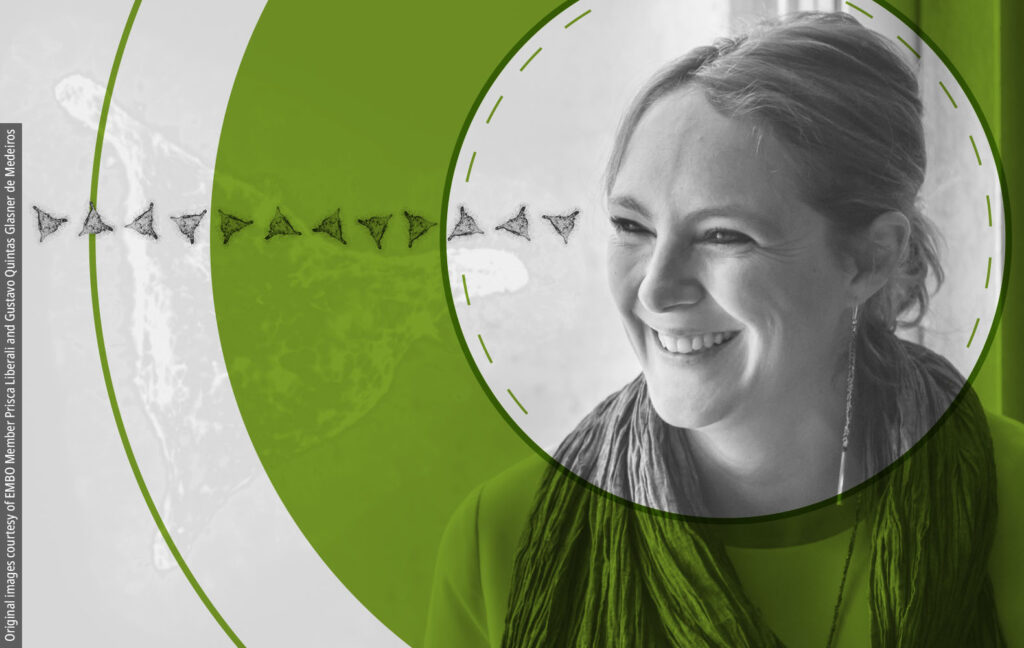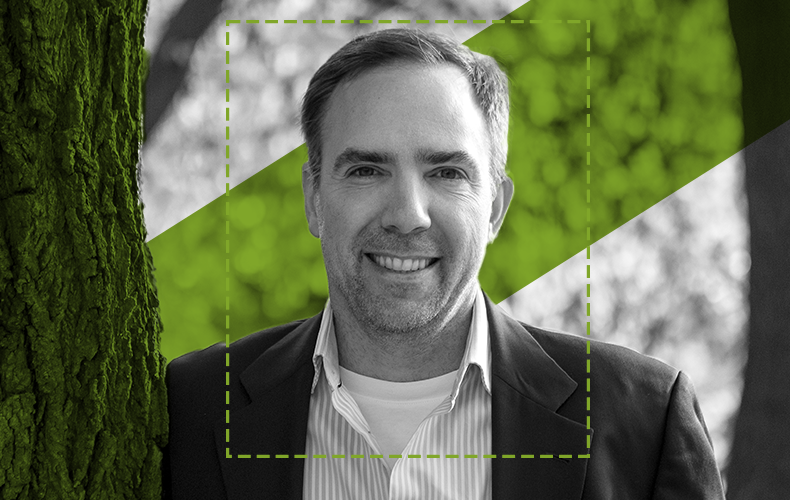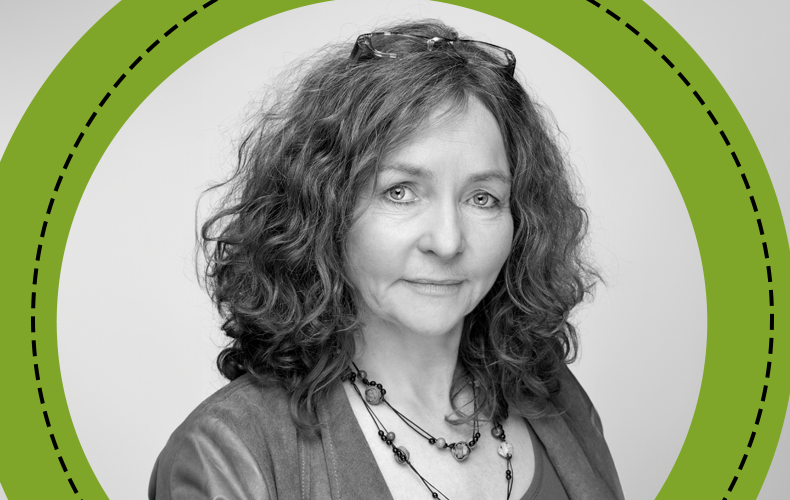30 November 2022 – Prisca Liberali is a senior group leader and EMBO Young Investigator at the Friedrich Miescher Institute for Biomedical Research (FMI) in Basel, Switzerland. In 2022, she became an EMBO Member and received the EMBO Gold Medal. The interview was conducted on the occasion of the award of the gold medal. Liberali will give her award lecture at Cell Bio 2022, a joint meeting of ASCB and EMBO, on 4 December 2022.
What or who has inspired you to become a scientist?
My biggest inspiration were my high school teachers for science and maths. I remember the exciting moments when we were doing experiments. There were also my parents: my mother, who is an artist, always helped me to find my authentic self and follow my dreams; my father is an engineer, and we built a lot of different things and did experiments.
Has there been a defining moment or a turning point in your career?
I trained as a physical chemist, and I still remember when I started my PhD in a biology lab. The turning moment was the first time I saw a cell under a microscope. That was the moment I realized that seeing is believing!
The other important moment was when I started my lab here at the FMI with very challenging and ambitious ideas, and without a lot of preliminary data on what I wanted to do. So I spent some time in the lab of Hans Clevers, who is an EMBO Member, to work on organoids.
What is your current research focused on? Why is it important?
We work on how individual cells can create multi-cellular systems. These are, in a way, tissues that are built in vitro, so we create mini-organs. We are trying to understand how these cells co-ordinate their behaviour to create higher-order structures and these patterns of multicellular systems, such as intestinal organoids.
We can use organoids to understand not only healthy organ development, but also what goes wrong during diseases. We can take biopsies from patients and create these small organs in vitro to understand the emergence of the disease, its regulation and the best treatment. We are currently investigating human-to-human variability in organoid development and colon cancer.
Why did you choose intestinal organoids to work on?
Organoids are extremely accessible for imaging, so we can get to the core of their cell biology. Intestinal organoids are well-organized spatially: they have a shape in contrast to many others. They display properties that are present in vivo, and we can recapitulate many of them in vitro.
Are there challenges in your research field that still need to be addressed?
The main challenge is to understand what the properties of tissues on the multicellular scale are. There are also technical challenges: We do not have intracellular and full tissue-scale resolution, or the temporal resolution necessary for fast processes that happen over a long period.
You have co-led the development of a new light-sheet microscope. Why is it innovative? What do you use it for?
Our light-sheet microscope can image organoids from individual cells to fully formed organoids up to two or three weeks. What it can do is a sheet of light in a 3D printed chamber, and this sheet of light is able to illuminate the sample very mildly. This allows us to grow organoids in their environment for weeks.
What does receiving the EMBO Gold Medal mean to you?
Receiving this prize gives me a big honour, and I am very happy about it. The other side is that it is an incredible recognition for the lab and for the lab members. They have innovative spirit and are constantly thinking outside the box.
I really appreciate the values of EMBO and what the organization is doing for the research community, Open Science, inclusion, diversity and mentoring at all levels from early to senior scientists.
What is your advice for young scientists starting a career in the life sciences?
My advice for young scientists is to find their genuine self and to try to find what authentically is important for them, and not be afraid of then following those desires and ambitions. To be bold and speak up was also very important for me.
You are a highly successful young group leader. How do you manage to balance your personal life and your work? What do you do to switch off?
My best way to balance my work and my personal life with my two children is to do a lot outdoors: I go hiking, skiing in winter, climbing and horseback riding. That really helps me to free my mind. I think it is best to find a good balance of energy requirements and time.
When do you get your best ideas?
Being outside helps a lot, but I have a very long commute. I live in Zurich and spend an hour on the train each way. For me, it is a good place to start a thought, finish it and find time to reflect. The train probably is the place where I have my best ideas.



